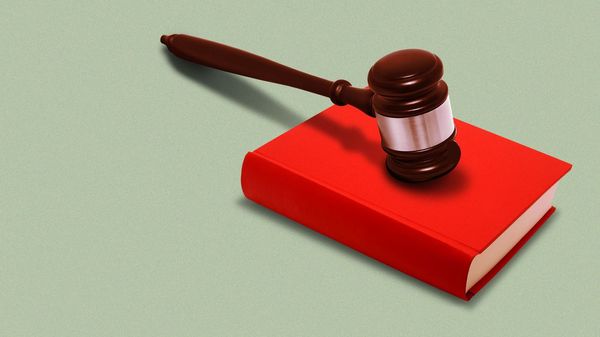What a difference a (fiscal) year makes. In 2024, Rachel Reeves spent far more time than she would ever have wished to looking worried, being gloomy, talking about the infamous £22bn “black hole”, and unleashing nasty surprises such as tax hikes and cuts to the pensioners’ winter fuel allowance and other areas of social security.
She may even have succeeded, as her critics claimed, in talking down the economy so hard that she made her own job even more difficult. In the end, she had to reverse her most high-profile (and most hated) policy and give most of the OAPs their fuel money back. Wisely, she got that U-turn out of the way, lest it blight the bright sheen cast on the economy by the spending review.
Now, facing the Commons with a spirit rarely glimpsed since that glad confident morning after the general election, the chancellor of the Exchequer seems a woman transformed. Now the talk is of nothing less than the renewal of Britain, with significant and genuine increases in investment in the NHS, schools, housing, industry, AI, defence and infrastructure. The statement was a dizzying cornucopia of road, rail, energy and other schemes reaching every corner of the kingdom, but, compared with earlier statements, it placed greater focus on the Midlands and the North, and was much more about “levelling up” than about austerity.
We need not get carried away, though. As the shadow chancellor, Mel Stride, reminds us – now that the Tories are the professional pessimists – inflation is up; so is unemployment; so are taxes; and growth forecasts have been marked down. The cost of living crisis is far from over. What’s more, expert analysis suggests that even more tax rises may be needed, and even on the chancellor’s own figures, borrowing will also increase for some years – with the national debt and the tax burden still at new postwar record highs, even on the most optimistic assumptions.
Voters, badly bruised by the disappointments of the past year or so, will wonder whether, as ministers claim, Labour really will be able to do all that it promises. They will rightly fear that there is a catch. Indeed, even with as well-received a package as this, some nasties could be seen sticking out from under the polished Treasury veneer. Council tax will likely rise by the maximum 5 per cent a year for the rest of this parliament, and rail fares may also continue their journey upwards, renationalisation or not.
Some departmental budgets are being cut by significant amounts, perhaps unrealistically so. There is a good deal, for example, riding on the ability of the home secretary, Yvette Cooper, to clear the asylum backlog and save large amounts of money by emptying the so-called asylum hotels. There’s more money for that – but will it be enough?
Without an accompanying assessment from the Office for Budget Responsibility – and given the uncertainty, until the Budget, about the progress of social security reform and Labour’s plans for taxation and borrowing – it is also impossible to say how much “fiscal headroom” Ms Reeves has provided for herself to allow for domestic disruption, such as public sector pay demands, or external shocks, such as a global trade war.
Her principal error since coming to power has consistently been to sail too close to the wind in regard to her fiscal rules. Even now that she has adjusted them (as she had promised not to), her room for manoeuvre may still not be sufficient to prevent further tax rises. The bond vigilantes will be watching (albeit the initial response of the gilt market, at least, was positive).
On the face of her statement, however, there does seem to be the prospect that the chancellor will be more successful than most of her postwar predecessors in one crucial respect: boosting investment. Far too often, governments have given way to the immediate short-run demands for extra “current” spending on public services, or for tax cuts, often under intense pressure from vested interests or the electoral cycle.
For about seven decades, “stop-go” and then “boom and bust” policies from successive administrations left trend UK growth at best uneven, with both living standards and the quality of public services deteriorating over time. Such pressures have worsened in the period since the global financial crisis of 2008. In recent years, the need to insulate the economy from the shocks of Covid and the energy crisis has left the national debt – and the cost of servicing it – far too high, but there were also fundamental, permanent forces at work, most insidiously, Brexit.
The problem underlying Britain’s sluggish growth – poor productivity – was easily identified, but the remedy – greater investment – was rarely given the priority it demanded. A “dash for growth” was more common than were efforts to create the long-term conditions required to boost confidence. Now, Ms Reeves has the chance to give the Starmer administration a new narrative: of investment, growth, and expansion.
The funds flowing into green energy, transport, housing, AI, R&D, training, and alleviating child poverty (a fine investment in human capital) also draw important political dividing lines between the government, the Conservatives and Reform UK – and the chancellor was right to deride Nigel Farage’s latest false prospectus. At last, the public can dare to hope for the “change” Labour pledged to deliver.
Alongside the Brexit reset (and hopefully more to come there), new trade deals, and the planning reforms, these latest investment plans should result in a stronger economy with a better long-term growth rate. But it will take time.
The results will not be entirely apparent by the next election, or sufficiently palpable to be certain to underpin an electoral recovery for Labour. Should they fail to do so, it would be a tragedy for the Starmer government – but, for a change, it should stick to its plans, and to the slogan the prime minister used so much on his way into Downing Street, which has been heard seldom since: country first, party second.







